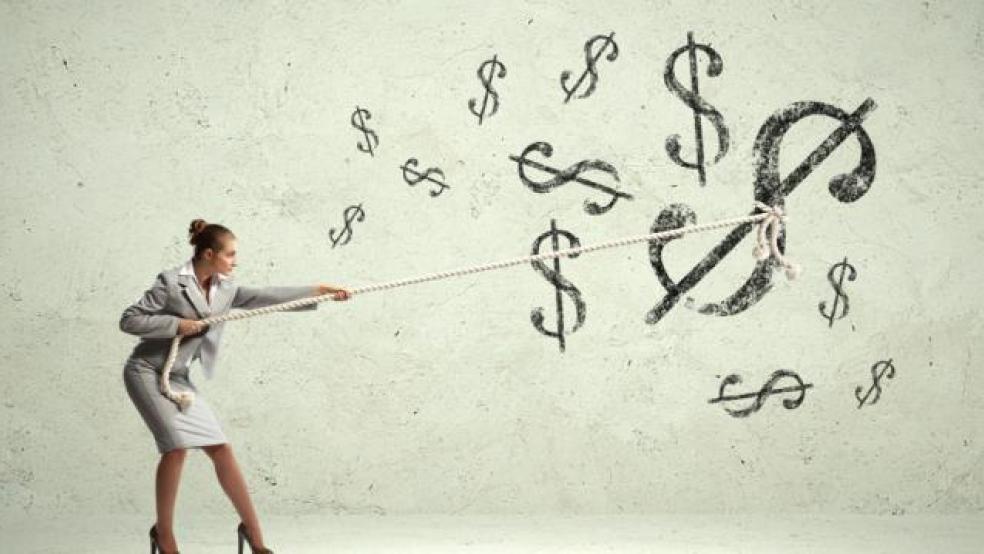Diamonds may be a girl’s best friend – but women are increasingly learning to love their pocketbooks.
A recent study by Ameriprise Financial, “Women and Financial Power,” looked at women ages 25 to 70 with at least $25,000 in investable assets. It found that 41 percent are making financial decisions alone, while 42 percent said they viewed themselves as the most financially astute person in their homes and 56 percent said they share equally in financial decisions with a spouse or partner.
“Twenty years ago, you wouldn’t have read survey results like these,” said Nell Merlino, director of PersonalBlackbox, a tech company, and former head of Count Me In, a not-for-profit business resource for women. “This is a marked change, that women feel empowered and in control of their finances.”
Related: Yellen, Lagarde and a New Era for Women in Finance
Today, an increasing share of women have business degrees and out-earn their husbands. More women are also choosing to delay or forego having children to stay in the work force, while others are starting their own companies.
Still, evolving gender roles and greater economic clout are changing women’s psyche and fueling positive change. “More women are feeling confident and comfortable as the CFO of their own lives,” says Elle Kaplan, CEO and founding partner of Lexion Capital Management, a wealth management firm in New York.
Boomer Women Are the Most Confident
Women’s feelings about money depend largely on their age. Nine in 10 boomer women said they’re primarily or jointly responsible for long-term saving and investment decisions, according to the Ameriprise study.
In contrast, 42 percent of women ages 35 to 54 have gone through divorce, unemployment, are supporting a child’s college education, and/or have seen a significant decrease in assets in the last five years, compared to 29 percent of older women and 24 percent of young women.
Related: Millennial Women Don’t Save As Much as Men
“As women get older and near retirement – arguably the biggest financial event of their lifetime – they engage more in their finances,” says Suzanna de Baca, vice president of wealth strategies at Ameriprise. “What was most surprising [about the study’s results] is that almost all women are involved in making financial decisions in their households.”
There’s no reason for riotous celebration, however.
Women Are Still Playing Catchup
“I’m thrilled that boomers are growing more confident in managing their money, that they don’t feel like they will be bag ladies, but when will it be true for the larger population of women?” wondered Merlino. “There are a lot of women who haven’t saved $2. The majority of small business women gross $50,000 or less.”
Five years after the financial crisis, 57 percent of women said they feel more confident when it comes to finance, compared to 71 percent who felt scared or confused in 2008, according to Fidelity Investments’ research. While that is an improvement, women still lag behind men, 65 percent of whom said they feel confident and prepared to tackle money matters.
Some women still fall for the myth that men are better with money. There are also fewer women financial advisers, particularly for the very wealthy.
Related: Is Betting on Women CEOs a Smart Financial Move?
To that end, she recommends that women, especially single women, strengthen their financial foundation by concentrating on paying down debt, which is a drag on financial health. Women should also establish a budget and an emergency fund, and save for retirement as soon as possible, since women live longer than men. Working with a financial adviser and developing a financial plan is also a good start.
Despite lingering issues, women are making strides.
“The Ameriprise study does a good job of helping to spread the word that in many households, women are in charge,” says Charles Tran, founder of CreditDonkey.com, a credit card comparison and financial education website. “Smart companies will start to notice it’s the moms that control the pocketbook. The dad is sometimes just the driver.”
Top Reads from The Fiscal Times:
- 13 Gadgets the 1 Percent Should Take to College
- Hula Hoop Is New Exercise Fad
- Millennials Embrace Alternative Medicine, a $32 Billion Business
This article has been modified to correct Suzanna de Baca's name.




